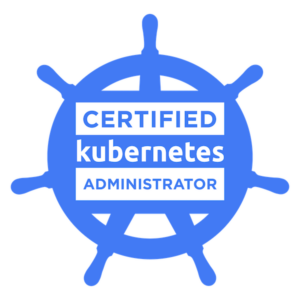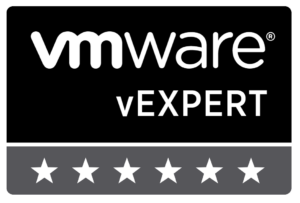I have continued to maintain the virtualelephant/ubuntu-ansible Docker container for my personal use since 2018. The container has been updated to recently and will continue to be maintained as I operate in the infrastructure-as-code model for the personal projects associated with the site.
As I’ve stated before, the container is not what I would call lightweight. It is intended to be used as a development container, where it can provide a base-level of libraries and binaries for running Ansible against a vSphere, vCenter or NSX-v endpoint. The container continues to clone several useful community Ansible modules, including vmware/nsxansible and OpenShift/ansible-ansible-contrib. I have modified the Dockerfile to copy these modules into the directory /opt/ansible/modules. The ansible.cfg file has been modified to leverage the new module location.
The container also pulls down both the NSX-v 6.3 and 6.4 branches of the nsxraml spec and places them in /opt/nsxraml. The specs should be backwards compatible, however it is possible some future version will not be. Therefore, I have created a symlink in the container that will always point to the most recent version of the RAML spec, while leaving the other branches there in case a consumer of the container requires them. NSX-T Ansible support will be added in a future release.
# Dockerfile for creating an Ansible Control Server with # the VMware modules necessary to build a complete SDDC # Blog details available: http://virtualelphant.com FROM ubuntu:latest MAINTAINER Chris Mutchler <[email protected]> RUN apt-get -y update RUN \ apt-get -y upgrade && \ apt-get -y install software-properties-common vim bind9utils bind9-host apt-utils && \ apt-add-repository ppa:ansible/ansible # Install packages needed for NSX modules in Ansible RUN \ apt-get -y update && \ apt-get -y install ansible python-pip python-dev python-netaddr iputils-ping libxml2 libxml2-dev libxslt1-dev zlib1g-dev npm git && \ pip install --upgrade pyvmomi && \ pip install pysphere && \ pip install nsxramlclient && \ pip install yamllint && \ npm install -g https://github.com/yfauser/raml2html && \ npm install -g raml-fleece # Copy customized ansible.cfg file to /etc/ansible RUN mkdir -p /opt/lib/ansible/modules /opt/lib/ansible/modules/nsxansible /opt/lib/ansible/modules/openshift/ /opt/lib/ansible/modules/ansible-modules-extras RUN mkdir -p /opt/lib/ansible/roles RUN mkdir -p /opt/lib/ansible/log COPY ansible.cfg /etc/ansible/ # Add additional Ansible modules for NSX and VM folders RUN \ mkdir -p /opt/tmp && \ git clone https://github.com/vmware/nsxansible /opt/tmp/nsxansible && \ git clone https://github.com/openshift/openshift-ansible-contrib /opt/tmp/openshift-ansible-contrib && \ git clone https://github.com/virtualelephant/nsxansible /opt/tmp/ve-nsxansible && \ rm -rf /opt/tmp/nsxansible/library/__init__.py && \ cp /opt/tmp/nsxansible/library/*.py /opt/lib/ansible/modules/nsxansible/ && \ cp /opt/tmp/ve-nsxansible/library/nsx_edge_firewall.py /opt/lib/ansible/modules/nsxansible/ && \ cp /opt/tmp/openshift-ansible-contrib/reference-architecture/vmware-ansible/playbooks/library/vmware*.py /opt/lib/ansible/modules/openshift/ # Get NSXRAML RUN \ mkdir -p /opt/nsxraml/6.3 && \ git clone https://github.com/vmware/nsxraml.git -b 6.3 /opt/nsxraml/6.3 && \ mkdir -p /opt/nsxraml/6.4 && \ git clone -b 6.4 https://github.com/vmware/nsxraml.git /opt/nsxraml/6.4 && \ ln -s /opt/nsxraml/6.4 /opt/nsxraml/current # Add vSAN Python API modules - must be done after pyVmomi installation COPY vsanmgmtObjects.py /usr/lib/python2.7/ COPY vsanapiutils.py /usr/lib/python2.7/ # Add ovftool COPY VMware-ovftool-4.3.0-8873523-lin.x86_64.bundle /var/tmp RUN sh +x /var/tmp/VMware-ovftool-4.3.0-8873523-lin.x86_64.bundle --eulas-agreed # Setup container to properly use SSH bastion host for Ansible RUN mkdir /root/.ssh RUN chmod 740 /root/.ssh COPY config /root/.ssh/config # Container build cleanup RUN rm -rf /opt/tmp/* # Edit MOTD to give container consumer info COPY motd /etc/motd RUN echo '[ ! -z "$TERM" -a -r /etc/motd ] && cat /etc/issue && cat /etc/motd' >> /etc/bash.bashrc # Default command if no command specified on the docker run command CMD ["ansible", "--version"]







